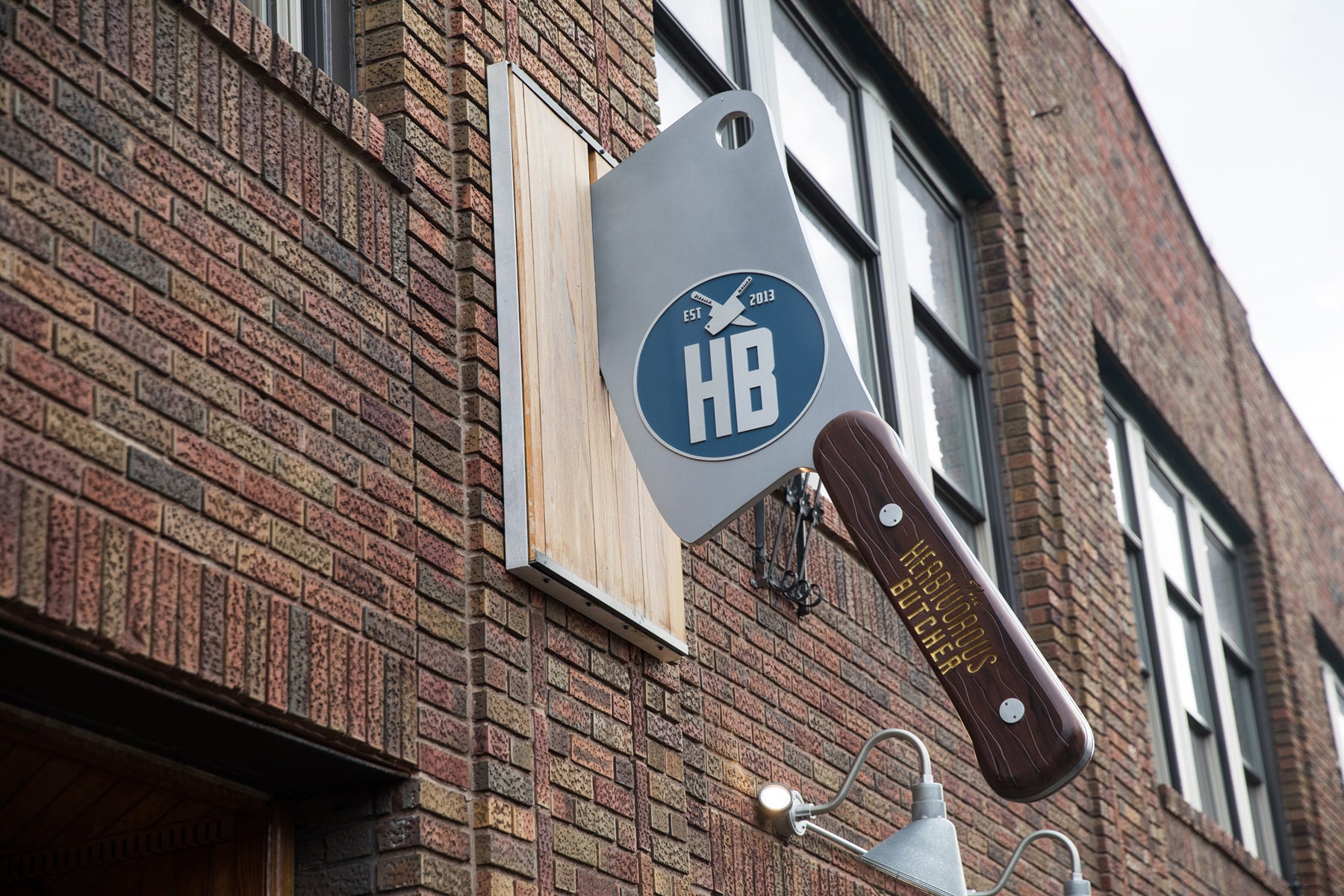Her lifestyle choice would, years later, become the foundation for a successful family business. But, at the time, she was still in high school, and her brother and someday business partner—Kale—was only a toddler.
In 2014, Aubry was working as a bookkeeper and office manager, knowing that it wasn’t the right fit. “I hated that I was doing something every day that didn’t help anyone,” she says. By night, she was making her own vegan meats after finding the commercially prepared versions inadequate and full of ingredients she couldn’t pronounce. Kale had recently followed in his sister’s footsteps, adopting the same diet and preparing plant-based meats substitutes by hand.

Though they were 12 years apart, the siblings were best friends. At a dinner party together one night, an idea came to them: What if they took their recipes to market? The duo started the business with their savings, securing space in a commercial kitchen and a 6-foot table at the local farmers’ market. It wasn’t long before they developed an avid following. “The farmers’ market opened at 8, and we’d be sold out of everything by 11,” Aubry says.
The farmers’ market pilot validated the concept for the siblings, and interest from a local investor helped them move from a single table to a full storefront. They raised $62,000 USD with a Kickstarter campaign and their investor made up the difference.
In January 2016, Aubry and Kale opened The Herbivorous Butcher as a Minneapolis brick-and-mortar destination for their handmade vegan meats and cheeses. The shop also features a market for complementary plant-based products and a deli where customers can order prepared sandwiches and soups.
Meatless Goes Mainstream
When Aubry first gave up meat in the ’90s, veganism was often synonymous with extremism, due in part to media coverage of PETA guerrilla advocacy. Access to plant-based information and prepared food was scarce, and vegans and “everybody else” didn’t have a common language.
A lot has changed since then. In fact, alternative meat options have become the norm rather than the exception. Canada’s largest pizza chain now offers vegan cheese at over 700 of its locations, and the Beyond Burger—an alternative to beef that Fast Company says has “a solid chance of converting dedicated carnivores”—is sold at Safeway and TGI Friday’s locations across the U.S. More recently, fast food chain White Castle announced plans to carry the plant-based (though not 100 percent vegan) Impossible Burger at 140 of its restaurants.
We’re creating a ruckus.
Aubry Walch
Meatless has infiltrated the mainstream, but Aubry says that veganism still carries a stigma. “People just have this really weird thing with vegan food,” she says. “But if you call it a ‘plant-based steak,’ they feel differently about it.” That’s why Aubry and Kale’s approach to the business—from the branding down to their customer service—is strategic. They want to create a familiar and safe space to talk about food. “You can come in and ask any kind of question,” she says.

With “butcher” in the name, the business has raised some eyebrows. The meat industry has taken notice, and even the negative press has been good for business. “We’re creating a ruckus,” says Aubry. The branding decisions have been instrumental in getting a diverse clientele through the doors. In fact, 60 percent of their customers don’t identify as vegan, she says.
To distance the business even more from vegan stereotypes, they’ve baked themselves into the brand. “We want people to know that there are real people behind this,” she says. “And that we use deodorant and we don’t have dreadlocks.”
Next-Level Commitments
The biggest hurdle for the Herbivorous Butcher is expansion. How do you scale a business running on human power, a production model reliant on hands? It’s a question that Aubry and Kale will try to answer as they formulate plans to open new locations. “We want to be able to ship nationwide with ground shipping,” she says. “That would put us in three other states in order to do that.” In 2018, their expansion took a different form—a food truck serving fried “chicken” sandwiches to hungry vegans and omnivores alike at events, breweries, and distilleries across Minneapolis.
Another challenge in gently coaxing people to plant-based diets? Cost. Human power isn’t cheap, and Aubry and Kale are committed to generous wages for their staff, whom they call family. But Aubry is optimistic. With subsidized commercial farming contributing so negatively to the environment, it’s only a matter of time, she says, before governments will wake up. “I think that over the next several decades, [the government is] going to be forced to also subsidize plant-based foods.”
Recently, the siblings took their commitment to animal welfare one step further. Their farm sanctuary project, Herbivorous Acres, launched a fundraising campaign, and they’re making moves to secure farmland. Events and an open-community space where people can interact with farm animals aim to educate and foster empathy. “We’re hoping to open a comfortable space where people can come spend time with farm animals and realize that they’re not any different than their cats and dogs,” says Aubry. Her expectation is that connecting with the animals will get visitors to think more deeply about what they’re eating and inspire the start of a journey like the one she began 20 years ago.
Photographs by Ackerman + Gruber
